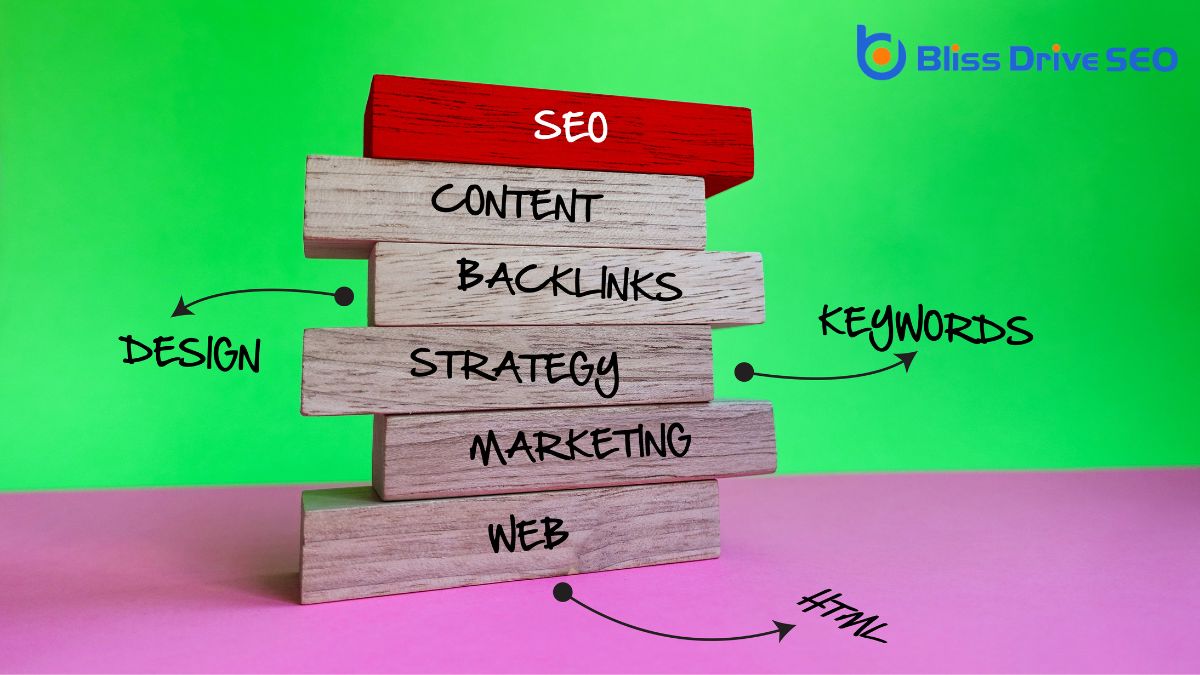Digital Marketing Services
Learn More About Us

When considering the cost of SEO keywordsWords or phrases that users type into search engines to find information., you might wonder why some keywords come with a hefty price tag while others are more affordable. It's not just about competition; factors like search volume and industry trends play significant roles. You need to weigh the benefits of long-tail keywordsLonger, more specific keyword phrases that are less competitive and often more targeted., which often provide targeted traffic at a lower cost, against the potentially high cost of popular, competitive keywords. But how do you strike a balance and ascertain you're optimizing your budget effectively? Let's explore the strategies and tools that can help you make informed decisions.
When considering the factors influencing keyword costs, understanding that competition plays a significant role is important. In the domain of SEO, the more businesses target the same keyword, the higher the cost you'll face. This happens because everyone is vying for prominent positions on search engine results pages (SERPs). As a result, popular keywords in competitive industries demand higher bids in pay-per-click (PPC)An online advertising model where advertisers pay a fee each time their ad is clicked. campaigns, driving up the cost.
Additionally, search volume directly affects keyword pricing. Keywords with high search volumes tend to be more costly since they promise greater visibility and potential traffic. You might find it tempting to go after these high-traffic keywords, but balancing cost and relevance is crucial. Sometimes, less popular long-tail keywords offerThe specific product or service being promoted by affiliates. better value by attracting more targeted traffic at a lower cost.
Quality scoreA metric used by Google Ads to measure the relevance and quality of keywords and ads. is another factor impacting costs. Search engines like Google assess your ad's relevance, the keyword's relevance to your landing pageThe web page a user is directed to after clicking on an affiliate link, optimized for conversions., and the expected click-through rate. A higher quality score can reduce costs and improve ad positioning.

To effectively manage keyword expenses, it's important to engage in competitive analysis and pricing. By examining what your competitors are doing, you gain insights into which keywords they're targeting and the strategies they employ. This helps you understand the market landscape and identify opportunities to position yourself advantageously.
Start by researching competitors' websites to see which keywords they're ranking for. Use tools like SEMrush or Ahrefs to analyze their keyword strategies and performance.
Once you've identified the keywords competitors are using, consider their pricing. High-demand keywords often come with higher costs, but they mightn't always be the best choice for your budget or goals. Assess the value of each keyword based on potential traffic, competition level, and relevance to your audience.
Don't just follow competitors blindly. Instead, find gaps or niches they haven't fully explored. This strategic approach allows you to optimize spending by targeting keywords that offer a balance of competition and cost-efficiency.
Regularly revisiting this analysis ensures you adapt to changes in the market. By staying informed and strategic, you can make more cost-efficient decisions that align with your SEO goals.
When considering the cost of SEO keywords, it's important to weigh the competition and value of long-tail versus short-tail keywords.
Long-tail keywords often face less competition and can leadA potential customer referred by an affiliate who has shown interest in the product or service but h... to higher conversionThe completion of a desired action by a referred user, such as making a purchase or filling out a fo... rates, making them valuable for targeted traffic.
In contrast, short-tail keywords might drive more traffic but at a higher cost and potentially lower conversion potential.
Traversing the terrain of SEO requires understanding the distinct roles that long-tail and short-tail keywords play in keyword competition and value.
Long-tail keywords, typically three or more words, cater to more specific search queries. They often face less competition, making them easier to rank for. This lower competition comes with a higher conversion potential since these terms often align closely with user intent. You'll find that targeting long-tail keywords can be a strategic move if you're aiming for nicheA specific segment of the market targeted by affiliates to promote products or services. markets or specific customer needs.
On the other hand, short-tail keywords are usually one to two words and are much broader in scope. They attract higher search volumes, which might seem appealing. However, the downside is the fierce competition. Ranking for these keywords demands more resources, from content creation to link buildingThe process of acquiring backlinks from other websites., and may not always provide a return on investment proportional to your efforts.
Balancing these two types of keywords requires a keen understanding of your goals and audience. By opting for the right mix, you can effectively manage your SEO strategy's competition level and maximize your keyword value, positioning your site for higher visibility and engagementThe interactions that users have with a brand’s content on social media..
Understanding the traffic and conversion potential of long-tail versus short-tail keywords can greatly impact your SEO strategy.
Long-tail keywords, which are more specific phrases usually containing three or more words, often attract less traffic but lead to higher conversion rates. That's because users searching for specific terms often know exactly what they want, increasing the likelihood of them taking action on your site.
On the other hand, short-tail keywords, typically one or two words, attract more traffic due to their broad nature. While they can drive a larger number of visitors to your site, these visitors may not be as targeted, resulting in lower conversion rates. Short-tail keywords are highly competitive, making it challenging to land on the first page of search results without significant effort and resources.
To optimize your SEO strategy, consider your business goals. If your focus is on attracting a high volume of visitors, short-tail keywords might be your go-to. However, if you're aiming for quality leads and higher conversions, investing in long-tail keywords could be more beneficial. Balancing both types can help you maximize traffic and conversion potential, tailoring your approach to your specific needs.
When you're considering industry-specific keyword pricing, you'll notice that varying demand factors play a significant role. In highly competitive markets, keywords can be much pricier due to the increased competition for top spots. Understanding these influences helps you allocate your budget effectively and target the right keywords for your industry.
In the world of SEO, keyword pricing isn't one-size-fits-all; it fluctuates based on various demand factors. Understanding these factors helps you make informed decisions. Let's explore some key elements that influence keyword demand and, consequently, pricing.
Although keyword pricing varies with demand, the competitive landscape of your industry plays a vital role in determining costs. When you're in a highly competitive market, expect to pay more for SEO keywords. Industries like finance, real estate, and legal services often face fierce competition, driving up the price of keywords. Competitors in these sectors are willing to invest heavily in SEO, making it essential for you to do the same if you want to keep up.
You should also consider how established your competitors are. If they've been around for a while and have a strong online presence, they're likely bidding on the same keywords you want. This increases the cost because you're competing against their established authority and SEO budgets. Understanding your competition's strategies can help you make informed decisions about your own keyword investments.
On the flip side, if you're in a niche market with little competition, you might find that keyword costs are relatively low. This gives you an opportunity to gain a competitive edge.
Understanding keyword bidding strategies is crucial for maximizing your SEO budget's efficiency. When you implement the right tactics, you'll make sure that your money is spent wisely while achieving peak visibility. Here's a clear approach to help you navigate the complex world of keyword bidding:
While mastering keyword bidding strategies can optimize your spending, having the right tools to estimate keyword costs is just as crucial. You want to make sure you're getting the most out of every dollar, and several tools can help you do just that.
Google Keyword Planner is a popular choice, providing estimated bids for keywords along with their search volumes. It's a great starting point for understanding the cost dynamics in your industry.
Another useful tool is SEMrush, which offers in-depth insights into keyword costs by analyzing competitors' data. You'll gain valuable information about what others are spending, helping you position yourself strategically.
Ahrefs is also an excellent option, giving detailed reports on keyword competitiveness and cost estimates.
Don't overlook SpyFu, which lets you peek into your competitors' ad spending, revealing the keywords they're targeting and at what price. This insight can guide you in making informed decisions.
Lastly, tools like Moz offer a keyword difficulty score, indicating how challenging it's to rank for specific terms. Combining these insights can assist you in estimating potential costs, making sure you're not overspending while still achieving your SEO goals.
When budgeting for SEO keywords, establishing a clear financial plan that aligns with your marketing goals is important. You need to take into account a few key elements to make sure your budget is both realistic and effective.
First, determine your total marketing budget and decide how much you're willing to allocate specifically for SEO. This helps you focus your spending and maximize results.
Here's a simple breakdown to keep in mind:

Optimizing keywords affordably can greatly enhance your SEO strategy without breaking the bank. It's all about being strategic with your choices and actions.
First, focus on long-tail keywords. They're less competitive and more specific, which often leads to better conversion rates. You can find these by using free tools like Google Keyword Planner or Ubersuggest to see what terms your audience is searching for.
Next, prioritize quality over quantity. You don't need hundreds of keywords to rank well. Instead, pick a few that are highly relevant to your business and target audience. Once you've identified these, incorporate them naturally into your content. This means using them in titles, headers, and throughout the body, but avoid keyword stuffingOverloading a page with keywords to manipulate search engine rankings., as it can hurt your rankings.
Also, keep an eye on your competitors. See what keywords they're ranking for and consider if those could work for you.
Understanding the cost of SEO keywords is vital for maximizing your digital marketing budget. By analyzing competition and industry trends, you can strategically balance long-tail and short-tail keywords to drive targeted traffic without overspending. Use tools to estimate keyword costs and develop effective bidding strategies. Always monitor and adjust your approach based on performance to guarantee cost-effective optimization. By doing so, you'll enhance your online presence and boost conversions while staying within budget.
